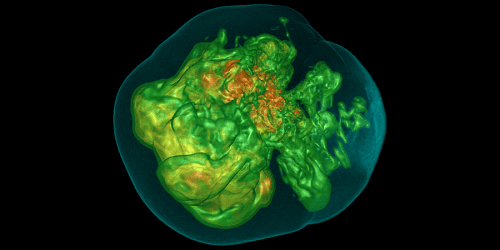Ovzon’s debut broadband satellite ready for commercial service

TAMPA, Fla. — Ovzon’s first fully owned satellite is ready to start commercial services following successful tests in geostationary orbit, the Swedish broadband operator announced July 5.
Company CEO Per Norén said the first full-service customer for Ovzon 3 will be GIGN (Groupe d’Intervention de la Gendarmerie Nationale), France’s elite police tactical unit, which plans to use the satellite for connectivity as the country prepares to host the Summer Olympics later this month.
According to Norén, Ovzon’s proprietary T7 mobile user terminal has also achieved 135 megabits per second download and 10 Mbps upload speeds with Ovzon 3, “significantly higher than our threshold and objective design specifications.”
When T7 was first deployed last year, the operator said it was receiving 60 Mbps and transmitting 10 Mbps using geostationary satellites Ovzon leases from other companies.
The Maxar Technologies-built Ovzon 3 has five steerable beams and a proprietary reprogrammable onboard processor that is designed to create a mesh network, enabling remote user terminals to operate independently of a terrestrial teleport.
The U.S. Department of Defense has traditionally been Ovzon’s biggest customer; however, the operator sees strong demand from government customers in Europe for what is also the first satellite owned by a commercial company in Sweden.
Tough journey
Years of launch and manufacturing setbacks forced Ovzon to twice get regulatory extensions for the satellite’s “Bring into Use” (BIU) deadline or risk losing priority spectrum rights for the 59.7 degrees East orbital slot.
Norén said Ovzon 3 arrived at this orbital slot May 26, after launching on a SpaceX Falcon 9 rocket in January, and started providing the signals needed to achieve BIU before the extended July 4 deadline.
He said Ovzon had notified international regulators through the Cyprus administration that the satellite had successfully arrived at its orbital slot.
The final step in the regulatory process is for Cyprus to re-confirm BIU 90 days after the satellite reaches its orbital position.
Related
Read the original article here




